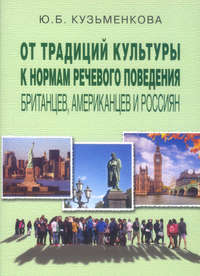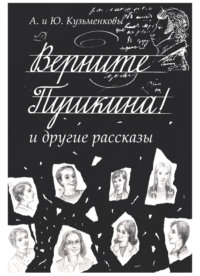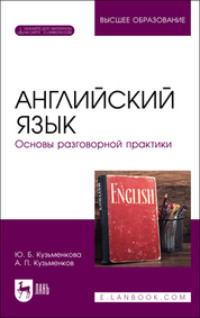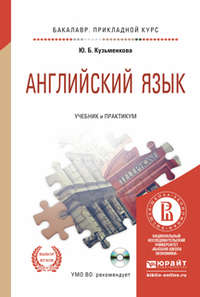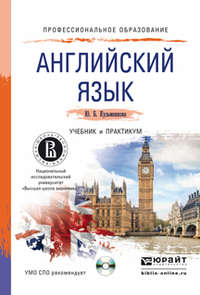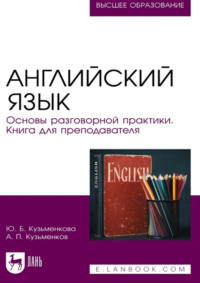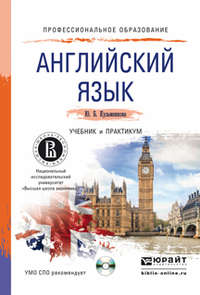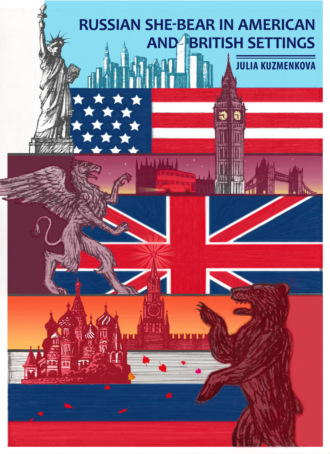
Полная версия
Russian She-bear in American and British Settings. A cross-cultural travelogue

Юлия Кузьменкова
Russian She-bear in American and British Settings
Across-cultural travelogue
Drawing by K. Puzankov
© J. Kuzmenkova
© K. Puzankov
Part 1. America and Americans: from ‘wow’ to ‘how’
How it all began
I’ve got a call on a gloomy wintry morning – not the best time for the news. No, not for me. And in my place anyone would be taken aback and get a bit suspicious woken from a drowse by something like that: “My congratulations, Julia! You’ve got it! Ready to jump with joy, aren’t you?” Why should I? In the declining post crisis Russia there were few reasons for good humour – rather for well-founded pessimism.
I couldn’t afford being discourteous and of course I’ve made all the appropriate noises over the phone: that’s great…, thank you…, oh, yes, I’m awfully touched… and so on but perhaps some of my mood came to the surface and was immediately noticed. “You didn’t catch it,” the motherly reproach came.“It’s a stroke of luck. You’re on the 1999 list for the IVP. Come at once and I’ll tell you the details. The journey will probably change your whole outlook”.
“Maybe the wise girl is right,” I thought and looked out obediently. Nothing in the air spoke of any change other than impending rain – so nice for November. Inside it wasn’t much better either. My kitchen – where the call had reached me – badly needed repairs after twenty years of… – I hope it’s easy to guess what – and it had been number one on my urgent changes priority list for centuries. Yes, the call was from the American Embassy but I simply couldn’t afford indulging in surprises.After all, I’ve got a family to take care of, not to mention my professional projects and quite a heap of administrative work to do. Slightly curious though as to what on earth had this IVP (sounding suspiciously similar to VIP whom I’ve never been) to do with me I was walking towards the embassy. It started to rain heavily (another uninspiring fact) when I reached the premises still wondering what was going to happen to me in the nearest future.
What I came to realise was quite an event. Going to the United States for three weeks as a member of the International Visitor Program (IVP) with the group of Russian teachers of English to uncover the aspects of the American education system… That was unheard of! Moreover, to have your joint report accepted by an international conference board and on top of it, to have all the expenses covered by the American government – that sounded too good to be true. I needed time to ‘digest’ the news, as Russians say.
The enormity of the news discovered went home, I’ve got a funny feeling of being an impostor. There should be a kind of mistake, those fine things couldn’t be intended for me, they are for some ethereal VIPs, and I’m just an ordinary human being. (When the matter was discussed later in the USA, it turned out that nearly all the members of our team reacted almost in exactly the same way on learning the news). It was pure chance, just as if you suddenly won in a lottery. But if it were really a lottery I would be on the loser’s side, as usual.
Yes, that really sounded a bit too good… Suddenly a chorus of voices started shouting and raging in my head.
“No, no way, dear!” one of them yelled. “What about kids?” another implored. “And more pressing work?” the third slyly inquired. But the most persuasive was the fourth.
“Hey, just think properly. You’ll have to abandon you daily routine for a month or even more, to have jet lag problems, to be on guard every single hour, to communicate with all imaginable and unimaginable sorts of people… And on top of it you’ll have to leave your cosy ‘bear den’ with thousand and one small things, small thoughts, small deeds – trifles you cherish no matter how small they are and even dearer being small.”
Oh, I instantly recognized the latter voice – it was my primal inner opponent, my inner ‘she-bear’ self. Normally deeply hidden but most reasonable and convincing as no one else – when voicing an opinion. The best way to deal with it was just to ignore before it could score too many points to become irresistible. So that’s what I did for the time being. Successfully, it seemed.
So I began digging in my past looking for an explanation – something plausible to retain my safety belt of scepticism. About a couple years ago I was making a report on typical mistakes in cross-cultural communication at a Moscow conference. The room was full of familiar and not so familiar faces of our compatriots; somewhat relaxed I felt free to offer comparisons of the kind: we are used to…, they misinterpret it…, our mentality is too… they cannot grasp the difference… While thus speaking less and less formally I suddenly caught my breath – to my sheer confusion I'd spotted in the periphery of my view a face or two that undoubtedly belonged to ‘them’. Proceeding now with greater caution I was at the same time trying to remember whether in my agitation I could have used a phrase or a gesture that might’ve been offensive. That’d be a capital joke: while theorising about possible dangers of losing cross-cultural awareness to fall into the same trap! I wound it all up rather smoothly and was about to leave the room when to my returning horror one of ‘them’ raised her hand and said she’d like to speak to me after the session ended. “You’ve got it; there’s no one else to blame,” I thought waiting for the lady to approach. Having introduced herself, she said that she was much interested (oh, thank God) in the subject discussed and offered further cooperation.
And it so happened that our keeping in touch was followed by filling some forms and papers related to a nominee selection for the IVP which were duly sent to officials in Washington. They benevolently granted their consent but I still have suspicions that it was mostly due to the fact that I’d last travelled abroad some twenty years ago…
Sightseeing
On a cold winter day our team boarded the plane due to take us to the unknown shores of America which we were eager to explore. And it was probably symbolic when after some four or five hours of tiresome flying we were rewarded by a unique chance of catching a breath-taking sight of vast fields intertwined by hills covered with snow glistening in the sun. The landscape below was fantastic reviving in the memory surreal polar scenes from Poe and Lovecraft. We searched for traces of human presence or interference and – unconsciously, despite our rational selves – for signs of strange and unknown creatures crossing the land and erecting their eerie buildings – but found neither. It looked as if those untouched and unknown vistas of rocks and snow lay guarding their fascinating and horrible secrets. Later we learnt that it was Greenland, the ‘green’ part of the name being rather misleading.
After our exhausting 11 hours’ journey we landed in Washington, D. C. America welcomed us by chilling wind and zero temperature. The weather was unusually cold for this time of the year and ever-present evergreens and poor remaining pansies were suffering from frost. Slightly dazed we speculated how we were going to survive the after-effects of the jet-lag. Our programme was packed quite densely – starting at about 8.30 and going into the late afternoon – and we had only Sunday to recuperate before our lectures and visiting tours began.
Sightseeing proved to be an amusing source of gaining cultural experience. The tour around Washington was a great success; we had a local guide, young and enthusiastic, who really knew and loved his city. Still we were also able to show him a peculiar feature in the capital. While sitting in the Capitol that fine after noon my attention was caught by a huge old clock – I noticed that the time it showed was somewhat strange. We’d seen quite a number of street clocks showing time in different cities of the world; but outside there were several clocks and here in the hall – only one. Then my glance suddenly fell on my watch which showed 8.30 p. m. Moscow time (I didn’t change it during the entire journey) and I suddenly realised that it was exactly the time I spotted on the wall clock. I turned for explanations to our guide but he only suggested that the clock had stopped. Content with that and thinking it was just a coincidence, I was curious enough to have another look at the clock in five minutes. Imagine my astonishment when it was showing 8.35 – the Kremlin time in the House of Representatives in the Capitol! I had a funny feeling as if my proud she-bear happily clapped her paws.
But our guide beleaguered with enquiries on the subject could only shrug his shoulders in bewilderment leaving room for abundant speculations over this inexplicable – though not unwelcome for us – synchronisation.
In New York we were lucky to meet my colleague’s acquaintance, a former architect and a Russian immigrant, who kindly offered to show us the spectacular panorama of an evening capital. It was he who shed some light on the mystery of the city’s architecture. I wondered if there existed a plan (like that of any ancient Russian town) for placing all those skyscrapers in Manhattan and to my surprise he answered in the negative. Apart from Broadway which served as a sort of historically preserved axis, all the sites in the vicinity were simply bought and the owners were free to choose for themselves what to build on their property. So after all, it was money that mattered rather than the beauty of the construction. No wonder you often get the impression of walking through a crazy labyrinth especially in central avenues. Looking up it is difficult to trace where skyscraper’s walls end and the space a head strangely curves into another giant. And living on the third floor of a multi-storeyed New York hotel building in a room with a view to a back yard was like being plunged in a kind of a well, suspiciously similar to old St. Petersburg yards wells where you are unable to see the sky and guessing what kind of weather is ‘out there’.
First surprises
In fact, there was quite a lot to discover, both about everyday life and professional issues – and it was not easy to say which was more important, at least at the beginning. No wonder our first impressions were mostly concerned with the surrounding world realities – plastic cards, taxes and tips.
Plastic cards seemed to be universal; they served not only as phone cards (which was very convenient because they were rechargeable) but also as keys to hotel rooms and elevator passes – another advantage that saved us the trouble of touching metal which was very unpleasant because of the unusual abundance of static electricity. Taxes were also a real source of confusion as arithmetic is commonly not among EL teachers’ strong points. Dealing with taxes proved rather frustrating because they should be added to prices indicated on labels and to fees; so hiring a taxi we preferred to ask in advance how much it would cost. And finally, tips, one more source of irritation which remained as such till the end of our visit since we never learnt properly whom to tip, how much and what for.
There remained still another vital element of everyday life threatening to ruin the beginning of that promising period of our professional career. What I mean here is an innocent traveller’s check. The project managers probably underestimated the effect that our complete lack of practice in dealing with it would have… The Monday morning programme began rather early but we courageously survived the first three opening speeches succeeded by two lectures and then it happened. We received quite a sum of money to be paid for our living and daily expenses in those travellers’ checks and during a ten (!) minute break we had to learn how to sign and use them properly. And if it were only that! We fell into a trap not uncommon for Russians – we began to convert the sum into roubles and computations though simple were very time consuming. Don’t lose your head, now that you’re incredibly rich – my giggling opponent eagerly prompted me. But for the lack of time I couldn’t get involved into inner dialogues.
The result of comparison was astonishing but predictable – here was a society with higher standards of living (in spite of the fact that prices were often even lower than in Moscow) and getting used to handling new currency was only a question of time. No wonder, one of the lecturers whom we happened to meet later in New York remembered us as ‘those Russian ladies who were absorbed by toying with money for the greater part of the presentation’. Luckily the professor seemed to bear us no grudge – he was well (from our point of view, of course) rewarded for his efforts. He found a good pretext for ignoring our questions after the lecture – he simply handed out summaries to review when our money-shock had gone and busied himself signing a somewhat ‘astronomic’ honorarium, a sum unheard of for a Russian teacher in those days, much exceeding an average monthly salary. For us that came as a sort of an aftershock.
College policies and regulations
Americans’ attitude to college policies and regulations also deserves attention. Russians are often criticised for dogmatic and authoritarian classroom management; our strict approach to maintaining discipline is also said to deprive students of freedom to behave naturally etc. Below are a few extracts from The ELTI Student Handbook for the readers to consider.
Attendance. The ELTI (English Language Training Institute) has a strict attendance policy: you should go to all of your classes but you must attend at least 80 % of your classes to complete them successfully. This does not mean that you can miss 17–19 % of your classes and that will be okay – your teachers will lower your grade if you miss close to 20 %. You may think, “I can miss a few classes and it will be OK.” However, if you get sick later, the classes you missed earlier will add to your absences from illness and you may fail the class. Try to schedule any appointments at times when you are not in class; this includes any trips you want to take.
Punctuality. Coming to class on time is necessary for the class to start when it should. When students arrive late, they disturb the class, and in our culture this shows disrespect for the teacher and other students. Being late for class may affect your grade; in fact, your teacher may add two or three of your tardies (being late) to equal an absence.
Конец ознакомительного фрагмента.
Текст предоставлен ООО «ЛитРес».
Прочитайте эту книгу целиком, купив полную легальную версию на ЛитРес.
Безопасно оплатить книгу можно банковской картой Visa, MasterCard, Maestro, со счета мобильного телефона, с платежного терминала, в салоне МТС или Связной, через PayPal, WebMoney, Яндекс.Деньги, QIWI Кошелек, бонусными картами или другим удобным Вам способом.


